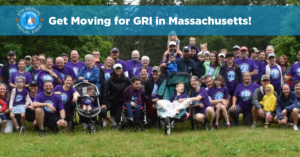Fears for Our Kids with GRIN Disorder
Share This Post

We asked family members on the CureGRIN Facebook page to tell us about their fears for their loved ones with GRIN Disorder. By far, the biggest fear we have as parents of a child with GRIN Disorder is who will care for them when we no longer can.
Who will take care of my child when I’m gone?
Maureen B. (GRIN1 Mom) says, “I think every parent of a child with disabilities fears the future in one way or another. With a relatively newly discovered disability like GRIN Disorder, we never really know exactly what lies ahead for our child. Sometimes when we are settled and confident in what we know about our child, things change, or new things arise! But of all the big and little things to be afraid of, care for my girl after Kevin and I are no longer here will always be my deepest fear.”
Brett’s Dad, Scott, and I have gone through the long-term planning process and identifying Brett’s future guardian or guardians. It was not easy. Karl K. (GRIN1 Dad) feels the same and says, “Who will look after Zach when we are gone. It was tough writing our will.”
Brett is an only child with no chance of having a sibling. But even parents with multiple children often wonder whether assigning the responsibility of caring for their sibling with special needs is fair or a realistic expectation.
We also worry about caring for our kids with GRIN Disorder when we are older. Before we leave this earth, there may be a time when are not physically capable of the care they require. As Rebecca F. (GRIN1 Mom) said, “My fear is what will life be like for Oliver after we can no longer care for him? We may still be alive, but unable to care for ourselves and no longer able to do the heavy lifting or complex daily checklist for his feeding/care. Who will look after Oliver then and will they treat him with kindness and respect?
We fear health issues that may take the lives of our children.
Besides the question of who will care for our kids, our other biggest fear is of outliving them. Lauren W. (GRIN1 Mom) is terrified of losing her son, Carter, while she is still alive. She is not alone. Although rare, our GRIN community has lost several loved ones due to complications related to this devastating disorder.
Many of our kids are non-verbal and therefore cannot tell us how bad they are feeling or how severe their symptoms are. Is something that might seem non-life threatening on the surface, something more serious? Some of us parents have spent countless nights in the Emergency Department where doctors cannot determine the cause of pain or discomfort. Parents worry about seizures and respiratory issues:
“I worry about Haythem not being able to be independent or health issues causing his death”. Nadine A. (GRIN2B Mom)
“Will this respiratory illness be Carson’s last?” Shannon G. (GRIN1 Mom)
“Will this seizure be the one he doesn’t recover from?” Kimberlee D. (GRIN1 Mom)
“My biggest fear is that an epilepsy attack is uncontrollable and fatal”. Ma R. (GRIN 1 Mom)
How will the world treat them?
We often think that no one will love our child as much as we do. This is true even for typically developing children. Us parents understand the incredible challenges our kids with GRIN Disorder face. Caring for them can be difficult. Our lives are hard. As their parents, our intense love for them drives our patience and dedication to them. But will others be as kind when we are no longer here protecting them? Ellen V. (GRIN2B Mom) worries, “What will other people do when Sven is angry? Will they understand him when he tries to tell them something? Will they kiss and hug him when he needs it, even when he is a grown man?”.
Who will protect them?
Our kids are vulnerable. Some are completely dependent on others to do everything for them. Many GRIN patients are non-verbal, unable to walk, and many cannot feed or toilet themselves.
They need our protection and us parents will do anything to keep them safe. But who will pick up the fight when we are no longer here? Parents fear:
Kaelin will not be able to protect herself from the harsh world we live in, when my husband and I are not around to do it for her, thus leaving her entirely alone. Kelly L. (GRIN2A Mom)
Holly will be vulnerable. I fear someone will harm her or not treat her with respect or patience. Anna K. (GRIN2B Mom)
My greatest fear for Elijah is him feeling different than other kids and like he isn’t special. Kids can be so harsh and it’s terrifying. Angel P. (GRIN1 Mom)
But here’s some good news:
A cure for GRIN Disorders is not only possible, many researchers think a cure is likely! Researchers around the world are building mice with GRIN variants to learn more about the disease and test possible treatments. Some have shown that many GRIN Disorder symptoms are reversable in adult mice. This offers hope for even for adults living with the disease.
Us parents have the power to accelerate this research. We can all help find cures and treatments for GRIN Disorder faster. Visit the CureGRIN website to learn more.
While we do not yet know how long a cure will take to discover, or how much of an improvement in our kids’ symptoms or their chances of ever living a normal life, I find hope in knowing that we can take action that can greatly improve their lives. I can see a cure in our kids’ future. I’ve had some very realistic-seeming dreams where Brett is talking with me and walking on his own. Waking up is bitter-sweet and leaves me with mixed emotions. I am sad when I awaken to the reality that he is still significantly impacted, but also hopeful that I’ve seen a glimpse of what is possible.
Read more Posts

Let’s Talk About Money
Today, I want to be transparent with you about how much money we have to spend on treatments and cures, how far that will take us, and exactly why we need your help to go further.

Get Moving for GRI in Massachusetts
Save the date! For the second year, the Leblanc’s and Forsyth’s are teaming up together to raise money and awareness for GRI Disorders!
